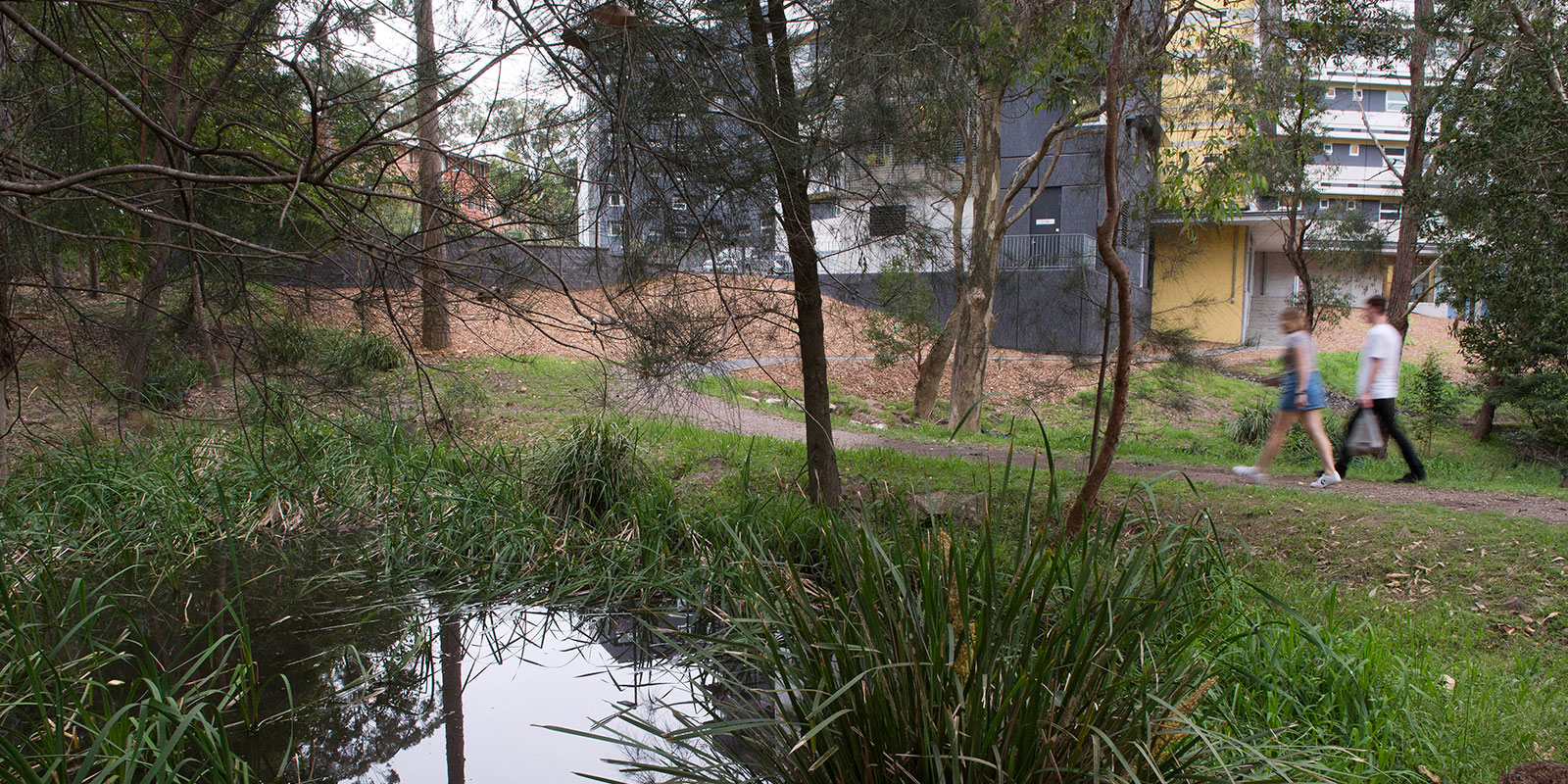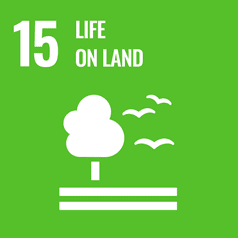

Goal 15:
Life on Land
Educational Programmes on Ecosystems
The University of Newcastle provided a range of courses, outreach, and education‑programmes in 2024 that focused on wild flora and fauna and ecosystem conservation, which engaged both students and the wider community.
2024 Educational Programmes
- ENVS2005 – Management of Australian Flora
This course was offered in Semester 2, 2024, on both the Callaghan and Ourimbah campuses. It explored Australia’s flora within its ecosystem contexts, with real‑world examples of vegetation management, fieldwork, plant identification, and strategies for maintaining botanical diversity under land‑use pressures. - ENVS3003 – Conservation Biology
Available in 2024 at the Callaghan campus, this course dealt with the principles and practice of nature conservation. Topics included impacts of urban development, invasive species, disease, and climate change on fauna & ecosystems. Students participated in field studies and learned how theory informs conservation action. - ENVS2004 – Ecology
Also in 2024, this course introduced students to population dynamics, species interactions, community ecology, introduced species, and biological control. It used fieldwork to help students engage directly with ecological data and wild species behaviour. - EPBIOL240 – Biodiversity and Conservation Management
This was offered in Semester 2, 2024 (both on‑campus and online). It provided insights into ecosystem diversity, habitat loss, protected areas, climate change impacts, and conservation strategies. It’s relevant for non‑specialist learners as well as those intending to pursue conservation careers.
In collaboration with Wong Fong Academy, the Centre for Sustainable Development hosted an insightful forum on 12 September 2024, focusing on the critical importance of sustainability and its impact on Workspace Safety and Health businesses.

Dr Charles Lee, CSD Director, organised a panel session on “Climate-related risks and opportunities for WSH Professionals”. Panellists comprised of sustainability experts: Bhavani Prakash (Co-founder Sustainable Gaia); Ken Hickson (Founder and Chairman, Sustain Ability Showcase Asia); Wee Boon Siong (CEO, Aeterni.eco).
ARC Linkage funding awarded to protect threatened species (2024)
Two diverse University of Newcastle research projects have been successful in the latest round of Australian Research Council (ARC)-funded Linkage Projects.
The ARC Linkage Program helps researchers, industry, and community organisations drive innovation and deliver outcomes for the benefit of Australia.
The awarded ARC Linkage Projects 2022 round 2 research projects from the University of Newcastle included:
Saving threatened species
Biodiversity faces a suite of threats caused by the burgeoning human population, including habitat loss and degradation, introduced predators, illegal harvesting and pollution. One of the many challenges of threatened species conservation is effectively communicating with communities to enact ‘on ground’ change.
Led by Communication and Media scholar, Professor Phillip McIntyre, this cross-disciplinary project combines the expertise of communication academics and conservation scientists to create participatory communities invested in protecting threatened species.
Funding: $506,000
Collaborating partners: University of Newcastle; Griffith University; NSW Department of Planning and Environment

Mangrove Ecosystem Restoration to Protect Endangered Proboscis Monkey in South Kalimantan
Mangrove forests have an important role in mitigating climate change. In an area equivalent to a tropical forest, mangrove forests are able to store 3-5 times more carbon. One hectare of mangrove forest is capable of absorbing 1,000 tons of carbon per hectare. To restore and maintain mangrove forests in Curiak island in the Barito River (South Kalimantan), the Sahabat Bekantan Indonesia Foundation (SBIF) in collaboration with the University of Newcastle (Australia) developed the Mangrove Ecosystem Restoration Program. The major mangrove species is locally called “Rambai” - Sonneratiacaseolaris.This program initiated in 2015 is a partnership platform that works synergistically to save and preserve mangrove forests. Most importantly, saving the mangrove forests plays a major role in protecting the proboscis monkey (Nasalislavartus) – “bekantan” in Indonesian. The proboscis monkey is an endemic primate of Kalimantan that is seriously threatened with extinction based on the IUCN conservation status. Saving the mangrove ecosystem and proboscis monkey is the same as saving human civilization.
The mangrove restoration program includes saving lands that are threatened with conversion; increasing scientific studies on rambai; educational and social training programs to educate local villages on protecting mangroves; conservation efforts for mangrove nurseries; planting and maintaining mangrove trees; and developing sustainable tourism programs through ecotourism.

The University of Newcastle acknowledges the traditional custodians of the lands within our footprint areas: Awabakal, Darkinjung, Biripai, Worimi, Wonnarua, and Eora Nations. We also pay respect to the wisdom of our Elders past and present.